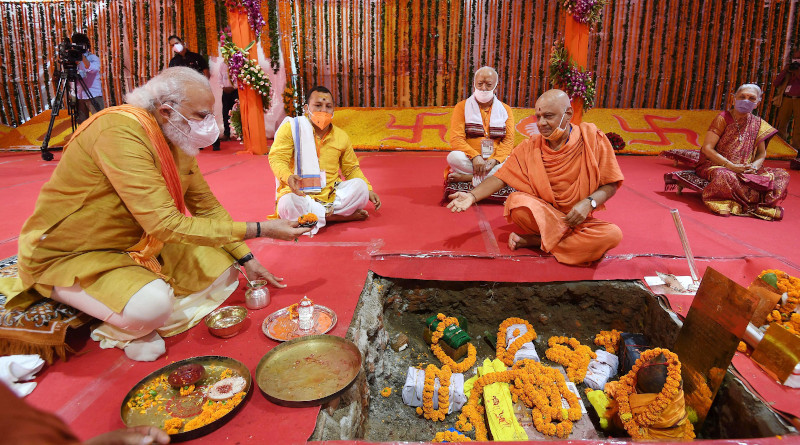India’s ‘Hindutva Icon’ May Face A United Opposition – OpEd
By UCA News
By Basant Rawat
(UCA News) — Indian Prime Minister Narendra Modi has reason to be worried. In a throwback to 1977 – when the entire opposition united to dislodge the then Prime Minister Indira Gandhi – Modi’s political rivals from diverse ideologies seem headed for united opposition to an ‘undeclared emergency” prevailing in the country under him.
A veteran of many poll battles, Modi must be well aware this could prove a zero-sum game for him and his pro-Hindu Bharatiya Janata Party (BJP), ruling the country since 2014.
The sudden expulsion of Congress leader Rahul Gandhi, grandson of former prime minister Indira Gandhi, from the elected lower house of Parliament, triggered this unprecedented unity among opposition parties.
Rahul Gandhi was dismissed less than 24 hours after a local court in Modi’s home state convicted him of making defamatory remarks at a public rally during a 2019 election campaign.
Opposition unity had proven elusive so far with the sundry political ideologies and interests of a plethora of national and regional parties in this vast country, which is home to varied cultures and ethnic groups with substantial differences in language, religion, and customs.
With only a year to go for the general elections of 2024, it seems some 18-odd parties are set to join hands to ensure Modi suffers an equally humiliating defeat as Rahul Gandhi’s grandmother.
Keen observers of Indian politics still believe this so-called opposition unity may still be a chimera, meaning it’s more a stage show than real action.
But still, it is equally true that until the 52-year-old Gandhi scion was dislodged as a parliamentarian, this elusive unity seemed a far-fetched idea even for most opposition leaders.
The opposition now believes that Modi is replicating Indira Gandhi’s dictatorial ways in every manner, be it dealing with the opposition, trampling upon the freedom of institutions including the press and judiciary, or browbeating the opposition by misusing government agencies.
Rahul Gandhi became the prime target for Modi when he exposed the links of the prime minister with businessman Gautam Adani, the world’s third and Asia’s richest man a couple of months back until his sprawling conglomerate spanning ports to airports, energy and cement, edible oil and data centers, came under attack by US short-seller Hindenburg Research.
The Congress has already announced its month-long, multi-tier countrywide agitation to explain to people the Modi-Adani nexus – an issue that virtually washed out parliamentary proceedings with the prime minister choosing to avoid uttering a single word to rebut the charges.
It is expected that the non-BJP parties will come together and join forces with the Congress in the coming days to expose how Modi is “destroying democracy and subverting institutions.”
Similar concerns and sentiments prevailed when Indira Gandhi, called the “Iron Lady,” chose to declare an emergency in 1975.
In her time, the popular national slogan was “Save Democracy.”
Modi, who went underground to escape arrest during the emergency years, now likes to call India the “mother of all democracies.”
Ironically, his critics believe it’s time now to “save democracy” from him.
Indian democracy is at a crossroads with many possibilities. Nothing can be ruled out at this juncture.
“A repeat of the 1977 general election is likely. But Modi will cling to power and can go to any extent to create hysteria by playing the ‘Hindutva card,’ which may be difficult to counter for the opposition parties. This fear is very much there,” social scientist Ghanshyam Shah believes.
Others feel this opposition unity is a “sham” and Hindutva, a movement seeking to establish Hinduism and Hindu culture as dominant in India, will triumph.
“You take it from me. Opposition unity will never happen. It is next to impossible. In 1977, people’s pressure propelled non-Congress parties to come together. No such thing is happening now,” political observer Anil Tyagi said.
Modi may not have done exceptional work as prime minister, but he knows how to keep people engaged and entertained. He remains very popular among the Indian masses.
It is not as if the BJP is not rattled by Hindenburg’s report on Adani. It has had an impact on the Modi government’s image. The prime minister’s effort to project a studied silence, refusing to answer uncomfortable questions fired at him by Rahul Gandhi, and instead choosing to remove him from parliament, may likely dent his popularity.
But to fight the BJP’s Hindutva, the opposition parties will have to devise a strategy, which they have failed to do so far. Rahul Gandhi could play an important role here but he cannot hope to be a top leader with several veterans in the opposition vying for that position.
One idea floating around is the united opposition fielding a single candidate against the BJP in all 543 parliamentary constituencies. This, some political strategists believe, can ensure a landslide victory for them.
However, that kind of electoral arrangement looks like a pipe dream at the moment.
So, will Modi eventually face a united opposition? It will be difficult to speculate.
At stake will be the prime minister’s own assertions about India in his opening remarks at the second edition of the Summit for Democracy, which aims to push for a “democratic renewal” against a rising tide of authoritarian rule across the globe.
“The idea of elected leaders was a common feature in ancient India, long before the rest of the world,” Modi reportedly said referring to the ancient Indian epic, Mahabharata, and the sacred Vedas, and other historical references to Republic states in ancient India.
“India is, indeed, the mother of democracy,” he reiterated in the presence of world leaders.
*The views expressed in this article are those of the author and do not necessarily reflect the official editorial position of UCA News.

